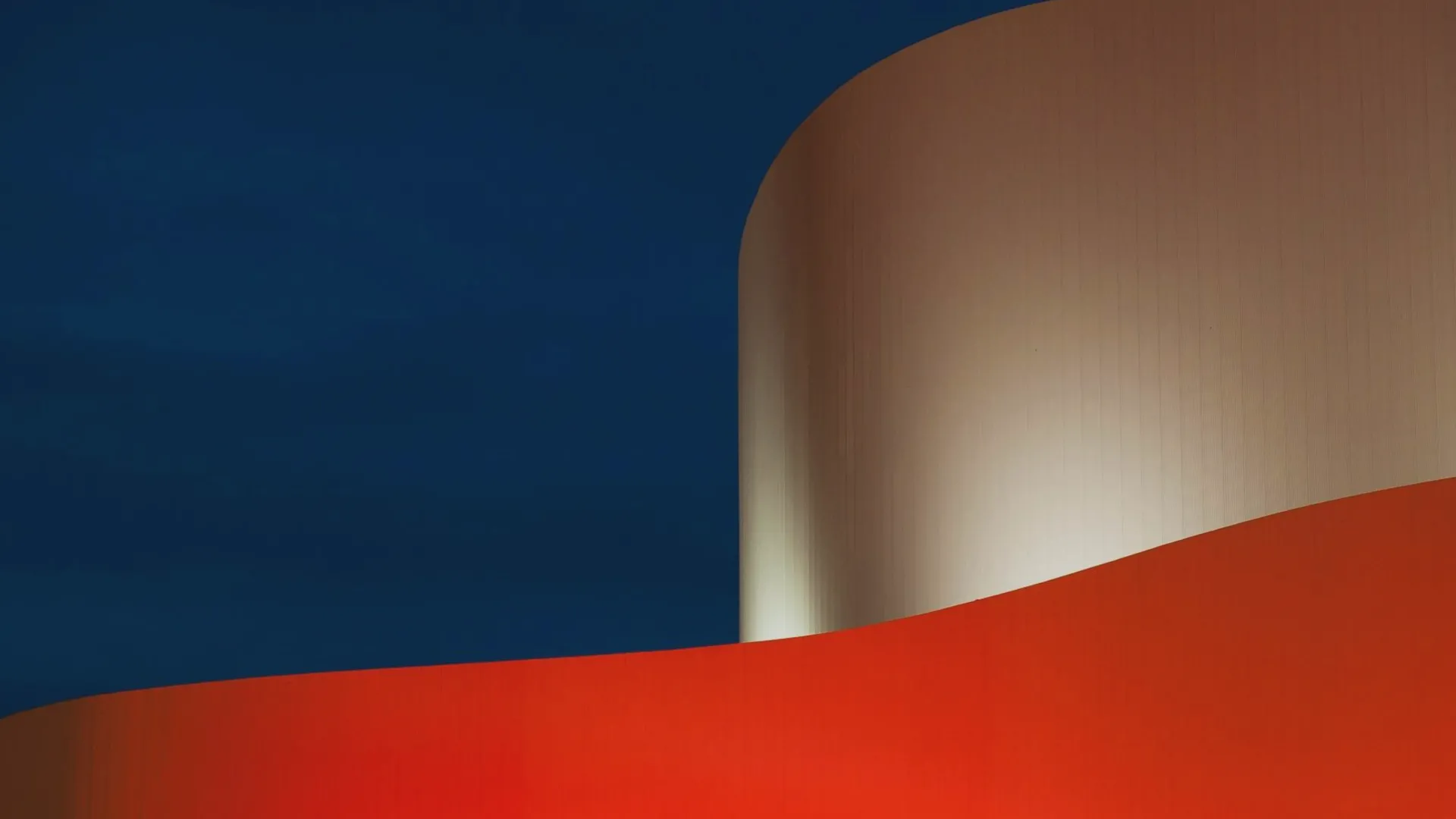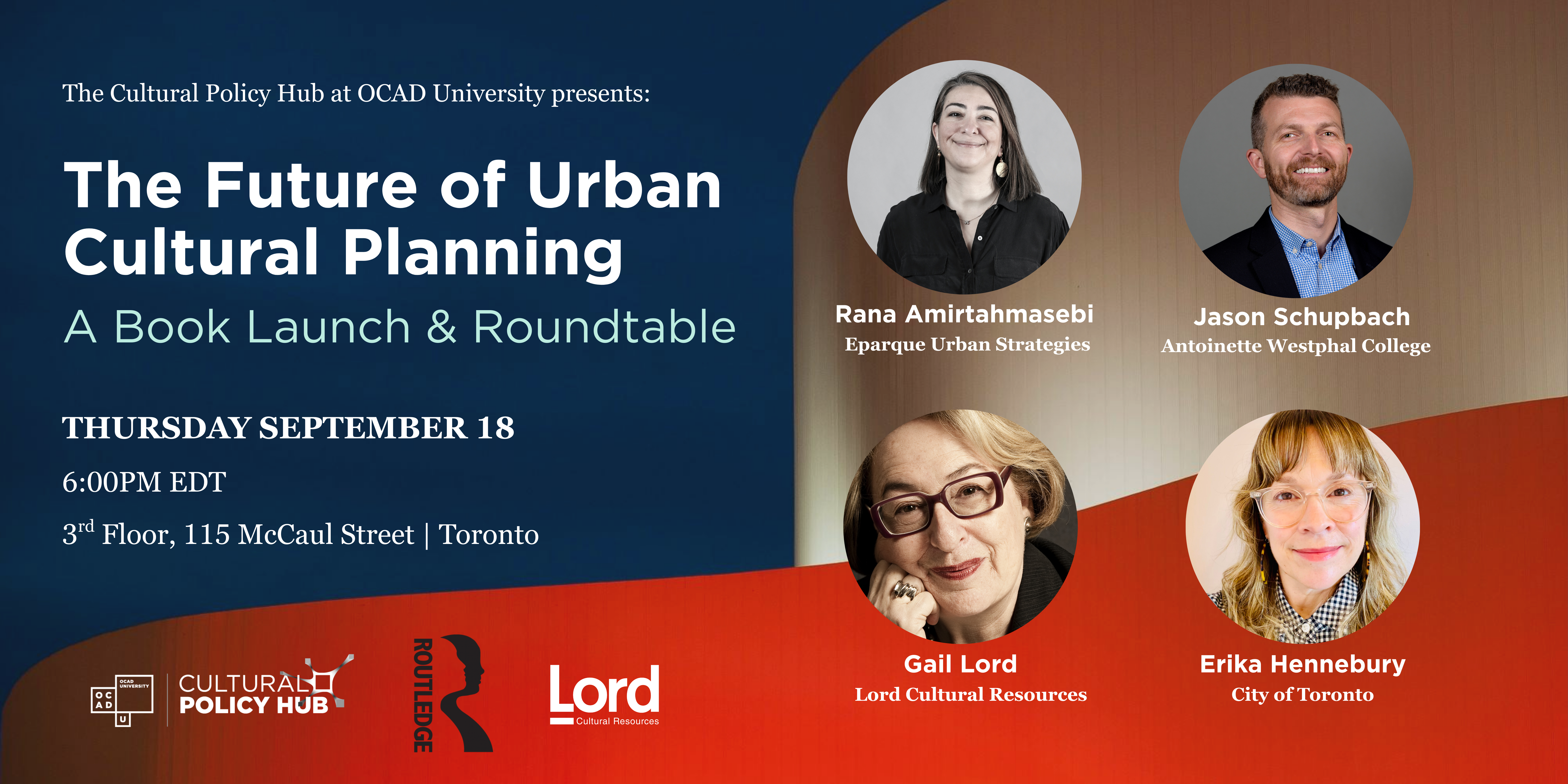The Future of Urban Cultural Planning:
A Book Launch & Roundtable
The city is a cultural construct.
Arts and culture are the connective tissue of urban life, fostering belonging and identity beyond bricks, streets, and infrastructure. Yet today, cities face mounting challenges in sustaining spaces for cultural production and participation.


The city is a cultural construct.
Arts and culture are the connective tissue of urban life, fostering belonging and identity beyond bricks, streets, and infrastructure. Yet today, cities face mounting challenges in sustaining spaces for cultural production and participation. Culture gives places meaning, and planners must learn to recognize, support, and mobilize it as a force for inclusive and equitable urban development.
Is culture simply a “nice to have” in cities—or is it integral to how we plan them? What role does it play: building belonging, driving economic growth, or enhancing real estate values? Do the arts accelerate gentrification, or do they create new opportunities and jobs? And what exactly is creative placemaking? Do cities need cultural plans?
Featuring editors and contributors to the Routledge Handbook of Urban Cultural Planning—the most comprehensive international survey of the field in the past decade—this session will unpack the latest thinking on the intersection of culture, the arts, and heritage with urban development. It will also offer practical tools and policy approaches to embed culture in planning practice.
Around the world, cities are recognizing the constructive value of diverse cultures and heritages. These elements strengthen residents’ sense of belonging, spark innovation, and contribute to local prosperity. Many municipalities support vibrant arts and cultural sectors, adopt cultural plans and maps, validate artists and culture bearers, invest in cultural spaces, and leverage both tangible and intangible cultural assets to improve quality of life and economic resilience.
Equitable development requires more than infrastructure—it depends on shared identity, belonging, and social cohesion. Urban cultural planning begins by identifying shared values, mapping cultural assets, exploring place histories, and understanding the people who shape the city through their creative talents and cultural practices. When done well, it provides a framework for deeper community engagement, more inclusive planning, and a stronger sense of place.
This session explores how creativity and culture can become drivers of sustainable, inclusive, and forward-looking cities.
About the speakers
Rana Amirtahmasebi is a cultural planning strategist and researcher. She has worked in different regions of the world, has published widely, and has led and facilitated technical meetings and workshops to formulate urban policy and cultural plans. Rana is a practicing artist and printmaker, holds Master’s degrees in both City Planning and Urbanism Studies from the Massachusetts Institute of Technology and graduated with a Master’s degree in Architectural Engineering from Azad University in her hometown of Tehran, Iran. She is the founder of Eparque Urban Strategies in New York and previously worked at the World Bank, Aga Khan Programme on Islamic Architecture, the City of New York, and other entities.
Jason Schupbach is the Dean of the Westphal College of Media Arts and Design at Drexel University. He is a nationally recognized expert in the role that arts and design play in improving communities and was the federal liaison to the design community in his role as Director of Design and Creative Placemaking Programs for the National Endowment for the Arts. He has held multiple other academic, government and foundation positions. He launched a groundbreaking new apprenticeship model of education with URBN and is the co-editor of the newly-published Routledge Handbook of Urban Cultural Planning.
Gail Lord is a leading museum planner, cultural visionary and co-founder of Lord Cultural Resources. She has helped to shape the museum profession through company’s over 2,900 projects in 57 countries. Her clients include the Louvre, Tate, the Smithsonian, and the Canadian Museum for Human Rights. She is the author of Cities, Museums and Soft Power and The Manual of Museum Management: Museums in Dynamic Change, and contributed the chapter “Growth, Crises and Prospects” to the Routledge Handbook of Urban Cultural Planning. Gail has been honoured as a Member of the Order of Canada, Officier de l'Ordre des Arts et des Lettres de France, and holds a Doctor of Letters from McMaster University.
Erika Hennebury is a queer theatre artist, cultural producer, and urban planner from Mi’Kma’ki/Nova Scotia, now based in Toronto. She is currently working as a Senior Cultural Affairs Officer and co-lead for the City of Toronto’s Office for Cultural Space, within Economic Development and Culture division. Erika is a Registered Professional Planner, and a member of the Canadian Institute of Planners, and the Ontario Professional Planners Institute. She holds a Masters degree in Environmental Studies and Urban Change, Planning (York University), with a major research focus on community land trusts and studied Municipal Cultural Planning and Development at UBC. Before joining the City in 2022, Erika was a Strategic Programs Manager at Toronto Arts Council for 6 years and an artist and producer for more than 20 years before that. Erika is a member of Planners Network and an associate member of the Canadian Network of Community Land Trusts.
Please be advised that OCAD U hosted events may be documented through photographs and video. These images may be used by the University for promotional, advertising, and educational purposes. By participating in our events, both on campus and off-site, you consent to allowing OCAD University to document and use your image and likeness. However, if you do not want us to use a photo or video of you or your child, please don’t hesitate to let us know when you arrive at the event. You’re also welcome to get in touch with OCAD University’s Marketing & Communications office: communications@ocadu.ca.
Be mindful of those in our community who have scent sensitivities; please help OCAD U maintain a healthy, scent-free campus.
